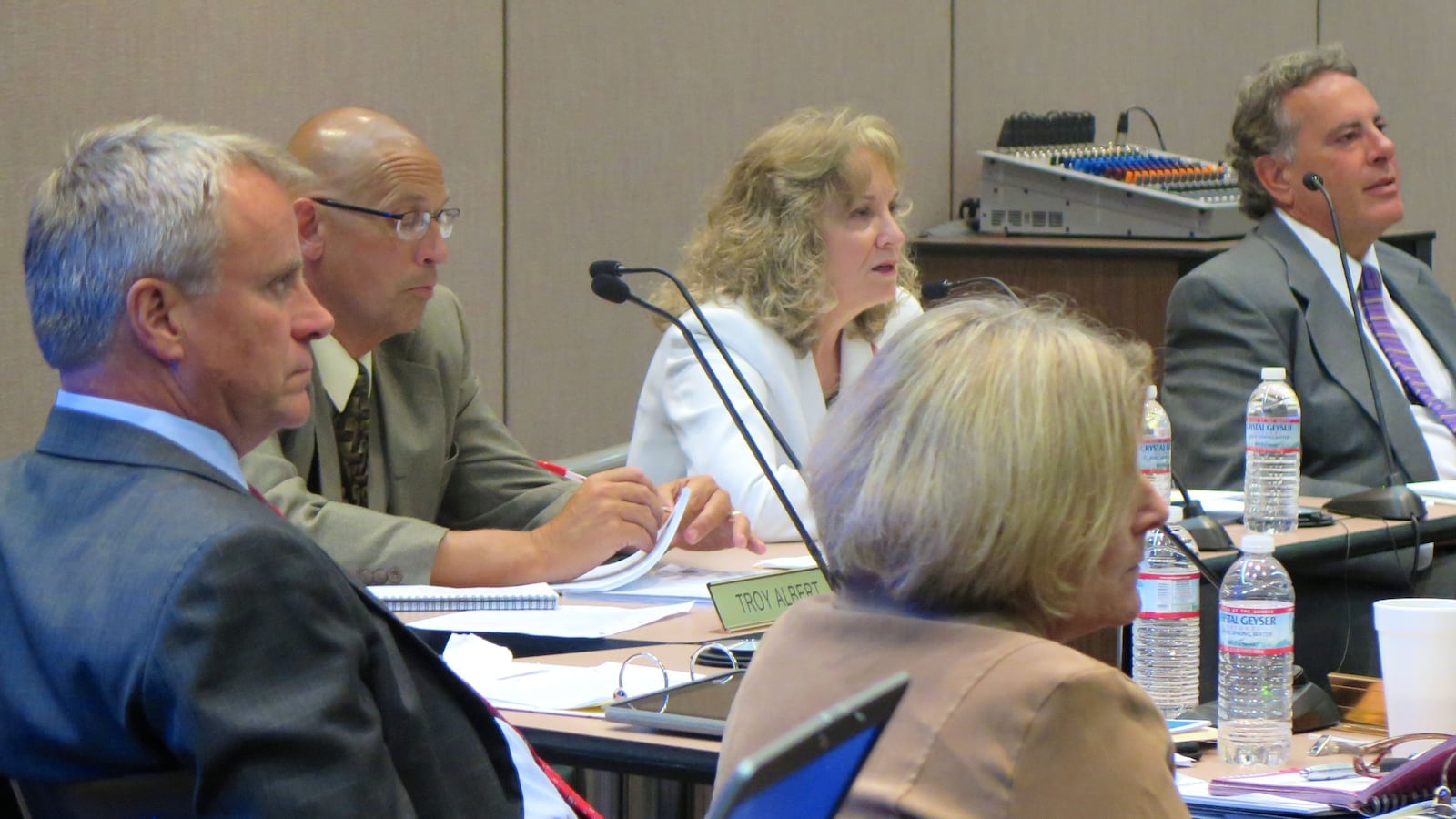When the Indiana State Board of Education members argue about their own meeting rules, which is often, observers can sometimes be heard whispering a simple question: why don’t they just follow Robert’s Rules of Order?
The board might answer that question Wednesday.
On the agenda for its monthly meeting, being held this time in Fort Wayne, is a simple proposal that would add this phrase to the board’s meeting procedures: “The procedures of all meetings shall be governed by the current edition of ‘Roberts Rules of Order, Newly Revised,’ except as expressly modified by these meeting procedures.”
Robert’s Rules were written in 1876 by Henry Martyn Robert, a U.S. Army officer, after a church meeting he tried to lead became unruly, according to the website RobertsRules.com. The rules were widely adopted by public boards across the U.S. and offer basic guidelines for resolving questions such as who can be recognized to speak, when motions can be made and other issues of meeting management.
Those basic questions have frequently been at the center of debates between State Superintendent Glenda Ritz and the other 10 state board members. Ritz, the only elected Democrat holding statewide office, is the chair of the state board by state law. But decisions are made by the majority of the board, and all other members were appointed by Republican governors.
At times over the past year, Ritz has used her power as the board chair to overrule motions or block votes on items she believes are out of order, which has angered a majority of the board. Last December, Ritz even abruptly adjourned a meeting rather than vote on a motion to alter the process for developing new state standards. That led to a consultation with an outside facilitator, but the debate relaxed only temporarily after that. There was another debate about meeting rules, and more changes to them, last month.
Also on the meeting agenda are:
Teacher licensure rules
A final vote is expected on the third iteration of the Rules for Education Preparation and Accountability, or REPA III.
The state board has twice approved those changes to teacher certification, including a controversial proposed “adjunct” teacher license that would allow anyone with a four-year college degree and a 3.0 GPA to teach if they pass a test of content knowledge.
The rule changes originally passed in December of 2012 at the last board meeting under then-Superintendent Tony Bennett, but were brought back earlier this year because of a procedural mistake that required a new vote. This time the board, with several new members appointed since 2012, narrowly reaffirmed its prior decision with a 6-5 vote. Ritz voted no, along with other educator board members including college professor Brad Oliver, principal Troy Albert and teachers Cari Whicker and Sarah O’Brien. Groups representing educators and university education schools have strongly opposed the rule changes.
IPS lead partners
In June, the state board rejected a request from Indianapolis Public Schools Superintendent Lewis Ferebee to fire “lead partners,” or outside organizations the state assigned to help overhaul three of its low-scoring schools.
On Wednesday, IPS will update the board on its plans for continuing to work with lead partners to improve John Marshall and Broad Ripple high schools.
Lead partners were originally assigned in 2011 as an alternative to state takeover. While four other IPS schools were severed from district control and handed off to be run by charter school organizations, the state board determined Marshall, Broad Ripple and George Washington high schools all could be improved with outside support from a consulting company.
One of those partners, The New Teacher Project, earned good reviews for its help at Broad Ripple, which saw test scores rise. When IPS asked to serve as its own lead partner, and take back more control, for the three schools, the state board agreed only for George Washington, choosing to keep The New Teacher Project at the other two schools.
The IPS school board’s recent talks about possibly closing Marshall to merge it with Arlington High School could also be a discussion topic.
New charter school sponsors
For the first time, the state board will hear directly from two private universities that have become charter school sponsors.
For most of the last decade, Indiana had only public-sector sponsors, with most schools overseen either by the mayor of Indianapolis or Ball State University. But in 2011, legislators passed a bill giving private universities the power to sponsor schools with the goal of giving more options to school developers and spurring more charter schools to open. More schools have opened, but concerns have also been raised that poor performing charter schools now have more options to “shop” for new sponsors to try to avoid shutdown for poor results.
Since then, only a few new sponsors have come forward, but two of them — Trine University in Angola and Grace College in Winona Lake — are in the Fort Wayne area. Both will make presentations to the state board about the schools they are sponsoring.
Sponsors play a critical role in charter school accountability, as they are the primary overseers who judge whether or not the schools are meeting their academic, financial and managerial goals and promises. Sponsors have the power to launch new schools and decide whether they can continue operating or must close during the course of their charter contracts.


